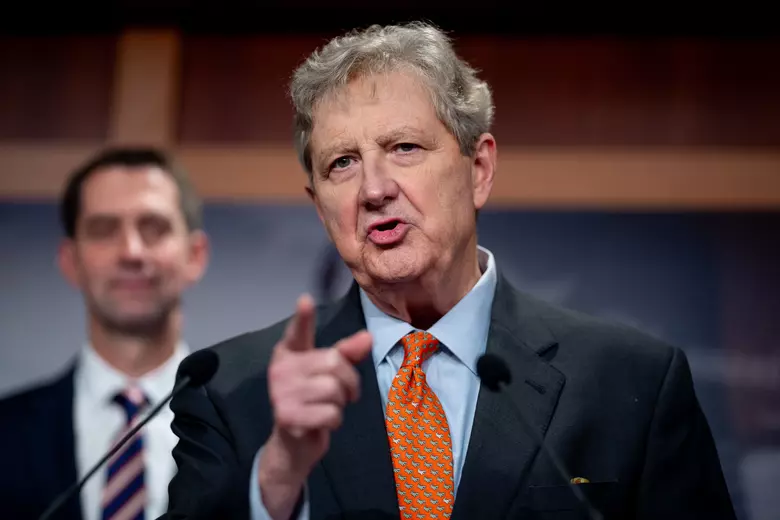Senator John Kennedy Launches Bold Assault on Congressional Pay During Shutdowns
In a blistering display of frustration with Washington’s dysfunction, Senator John Kennedy (R-LA) introduced twin pieces of legislation on November 4, 2025, aimed squarely at lawmakers’ paychecks. The bills would prevent members of Congress from receiving any salary until the federal government reopens after a shutdown — and ban them from collecting back-pay for the period, too.
Dubbed the “No Shutdown Paychecks to Politicians Act” and the “Withhold Member Pay During Shutdowns Act” (S.3057), the measures reflect Kennedy’s anger at a system where federal employees, servicemembers and essential personnel must go without pay when the government stops functioning — while lawmakers continue collecting their salaries.
“If we can’t do our jobs and fund the government, we don’t deserve a paycheck – plain and simple,” Kennedy declared. “I don’t see missing paychecks or empty dinner plates as leverage or bargaining chips. My bills ensure Congress feels the same pain as the folks we’re failing to pay – our troops, air-traffic controllers, and federal workers.”
Demand for accountability
Kennedy’s plan is blunt: during a funding lapse or shutdown, payroll administrators in the House and Senate would place members’ salaries into escrow accounts that only release funds at the start of the next Congress. In the case of the No Shutdown Paychecks Act, Congress members would receive nothing until government funding is restored.
Joining Kennedy in the push, Representative Bryan Steil (R-WI-1) introduced a House companion bill. He argued there is “no reason our government should be shut down,” emphasising that if servicemembers and federal law-enforcement officers go unpaid during a shutdown, then “members of Congress should not be paid either.” 
A sign of deep frustration
This initiative comes as the United States continues to struggle with repeating threats of government shutdowns — a recurring embarrassment for Congress and a serious disruption for federal workers and the public. Kennedy’s measures signal a growing impatience among lawmakers who feel the system has become rigged in favour of politicians rather than the people they serve.
Kennedy’s rhetoric pushes beyond the usual political complaining. He directly frames the issue as one of fairness: if the government cannot keep the lights on, then those living off its decisions (lawmakers) should suffer the same inconvenience and financial consequence as those who work for it.
Political risks and payoff
Of course, moving from proposal to law will require navigating the treacherous terrain of Congress. Many lawmakers might not embrace legislation that cuts their own pay. The idea of escrowed salaries or withheld paychecks may face resistance from members who argue that compensation must remain unaffected to avoid other unintended consequences — union issues, salary obligations, legal claims, etc.
Nevertheless, Kennedy has tapped a potent vein of public anger. Many Americans see shutdown standoffs — where budget battles or political feuds force agencies to partially close — as emblematic of a disconnected elite. By saying “we’ll feel the pain, too”, Kennedy is attempting to restore the moral high ground for Congress.
Calculated shock move
Whether the bills become law or not, the move is calculated to make waves. In an era where political polarisation and institutional frustration are high, Kennedy’s “no pay during shutdowns” message hits a nerve. It allows him to cast himself as the law-maker willing to bite the hand of his peers, not just rant about dysfunction but propose cold, hard consequences.
If Kennedy is right, and the next shutdown occurs, he may watch as his own pay is frozen — all in the name of forcing Congress to do the job it’s sworn to do: fund the government and keep it open. For many voters, that kind of accountability may be long overdue.
Leave a Reply